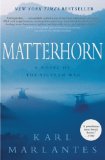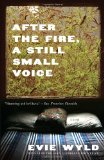Summary | Excerpt | Reviews | Beyond the book | Read-Alikes | Genres & Themes | Author Bio

A Novel
by Biyi BandeleTaut and immediate, at once somber and exhilarating, The King's Rifle is the first novel to depict the experiences of black African soldiers fighting in Asia in the Second World War.
First published in the UK as Burma Boy.
It's winter 1944 and the second World War is entering its most crucial state. A few months ago Ali Banana was a blacksmith's apprentice in his rural hometown in West Africa; now he's behind enemy lines, trekking through the Burmese jungle. He is fourteen years old. Led by the unforgettably charismatic Sergeant Damisa, the unit has been given orders to go behind enemy lines and wreak havoc. But Japanese snipers lurk behind every tree - and if they manage to escape the Japanese, infection and disease lie in waiting. As torrential rains turn the landscape into a muddy death trap, the losses mount up. Homesick and weary, the men of D-Section Thunder Brigade refuse to give up.
Taut and immediate, at once somber and exhilarating, The King's Rifle is the first novel to depict the experiences of black African soldiers in the Second World War. This is a story of real life battles, of the men who made the legend of the Chindits, the unconventional, quick strike division of the British Army in India. Horrific and always brilliantly executed, this vividly realized account details the madness, the sacrifice and the dark humor of that wars most vicious battleground. It is also the moving story of a boy trying to live long enough to become a man.
First published in the UK as Burma Boy.
Overall, The King's Rifle is an exceptional work that gains depth as it progresses toward its compelling and unforgettable dénouement. Bandele's writing style may not appeal to all readers, but those interested in the story of this mostly unheralded band of soldiers will want to put The King's Rifle high on their lists...continued
Full Review
 (709 words)
(709 words)
(Reviewed by Kim Kovacs).
Major General Orde Charles Wingate was a controversial figure in the British
military during WWII. He was abrasive and opinionated, with ideas about warfare
that struck those around him as either idiotic or sheer genius. Many of his
superiors were impressed by him; others thought him a madman.
Wingate was born in India in 1903. He gained a commission in the Royal Artillery in 1922, beginning a lifelong career in the military. During the years that followed he served in the Sudan and later in Palestine. In 1940-41 he formed a commando unit, "Gideon's Force," which operated on the Ethiopian-Sudanese border, where it was very successful against the Italian Army. He was sent to Burma in 1942 to form a force to combat the Japanese. ...

If you liked The King's Rifle, try these:

by Karl Marlantes
Published 2011
A big, powerful saga of men in combat, written over the course of thirty-five years by a highly decorated Vietnam veteran.

After the Fire, a Still Small Voice
by Evie Wyld
Published 2010
Set in the haunting landscape of eastern Australia, this is a stunningly accomplished debut novel about the inescapable past: the ineffable ties of family, the wars fought by fathers and sons, and what goes unsaid.
If every country had to write a book about elephants...
Click Here to find out who said this, as well as discovering other famous literary quotes!